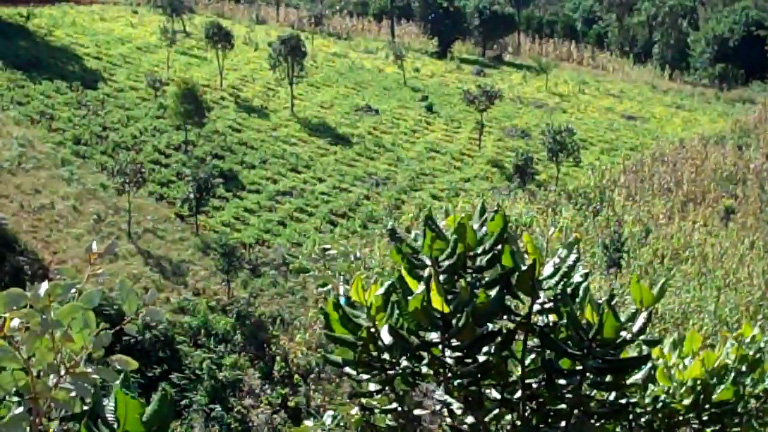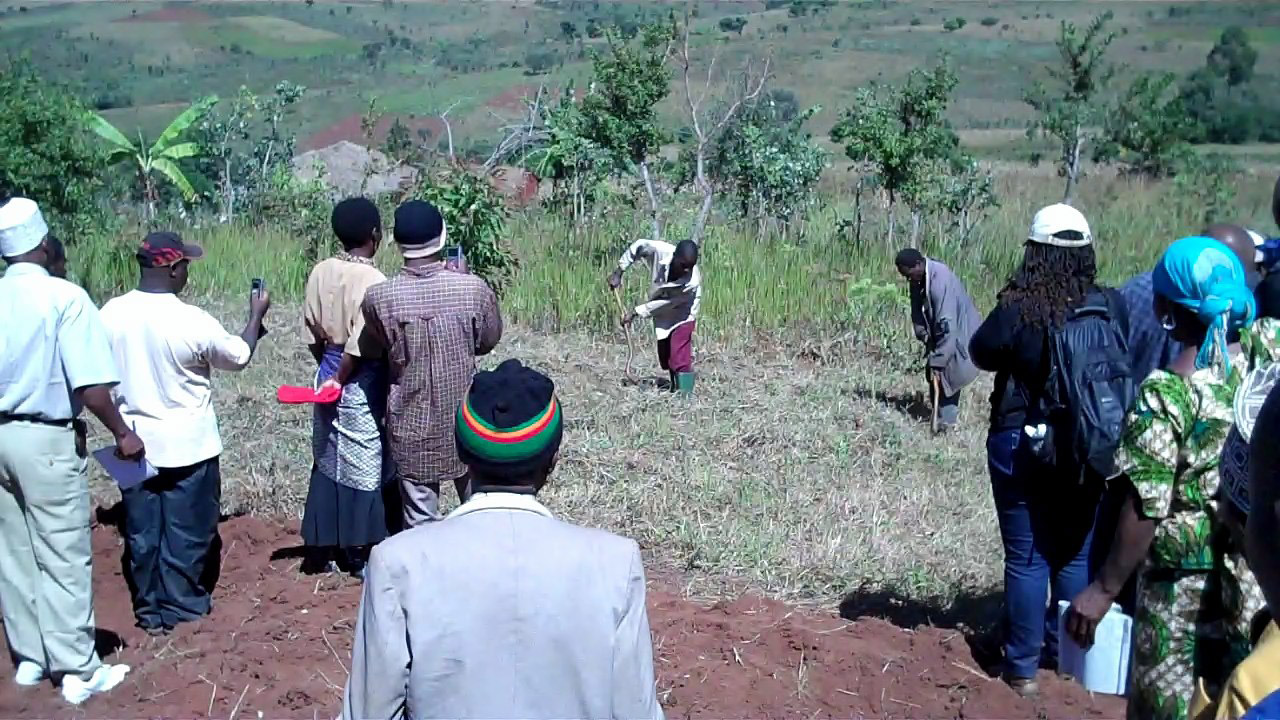
Nick Nathaniels, Lebai Nsemwa
The Natural Resources Institute (NRI) has been commissioned by the Climate Change, Agriculture and Food Security (CCAFS) programme of the CGIAR to test the CCAFS 'Farms of the Future' approach, which introduces farmers to places where the current climatic conditions are similar to those projected for the farmers' home areas in the future.
Locations are identified through climate analogue modelling by the CCAFS team, as well as local knowledge from country partners and the NRI team of potential learning opportunities. The farmer study tour covers a number of these sites to enable farmers to explore their possible climate futures, with the aim of building their ability to adapt to climate change.
A successful study tour in Tanzania was undertaken in May 2012. Farmers from two communities (Mbuzii and Yamba) from Lushoto District in the north east of Tanzania journeyed to Mbinga, in the south west of the country. Travelling by bus, the group comprised 15 women and men farmers, a district extension officer, a community development officer, two NGO representatives, the NRI team and a representative from CCAFS.
The study tour group visited a number of sites along the way that had been specifically chosen because they are experiencing climates similar to those projected for Lushoto in 2030, and because of local initiatives, such as projects supporting community weather monitoring and indigenous soil and water conservation techniques, provided useful learning opportunities. The journey gave the farmers and other Lushoto stakeholders a chance to explore how they might innovate in order to respond to the changing climate.
The Lushoto farmers recorded their experiences on video throughout the journey, having received training on using low cost video cameras at the start. They also were responsible for selecting footage to be included in edited versions of their videos. On return to Lushoto, a reflection session was held in Mbuzii and Yamba villages, where the videos were shown and discussions were held about how to follow up the study tour.
Making Matengo pits as a demonstration
 In the coming months the NRI team will analyse the learning process and farmers' videos in order to assess the strengths and weaknesses of the overall approach. They will evaluate the piloted methodology in terms of whether it has the potential to build smallholders' ability to adapt to climate change and other pressures.
In the coming months the NRI team will analyse the learning process and farmers' videos in order to assess the strengths and weaknesses of the overall approach. They will evaluate the piloted methodology in terms of whether it has the potential to build smallholders' ability to adapt to climate change and other pressures.
Today there are on-going participatory action research processes in these communities, facilitated by CCAFS, which provide opportunities for the participating farmers and the other district agricultural stakeholders to act upon the ideas which were generated by the study tour, e.g. adapting the indigenous Matengo pits systems of soil and water management seen practised by farmers in south west Tanzania to their Lushoto context. Later in 2012, a second study tour will be facilitated involving farmers from Lawra-Jirapa in Northern Ghana in a similar process. A final report will be available at the end of the year.

